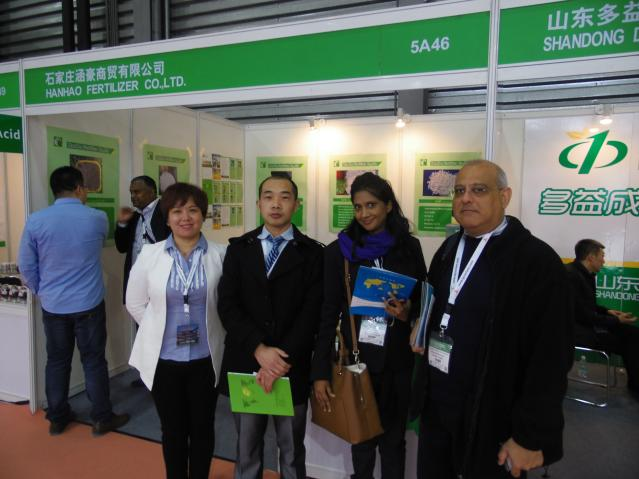
Okt . 19, 2024 04:47 Back to list
organic farming fertilizer supplier
The Rise of Organic Farming A Focus on Fertilizer Suppliers
In recent years, organic farming has gained substantial traction across the globe as consumers become more health-conscious and environmentally aware. People are increasingly opting for organic produce, which is believed to be healthier and more nutritious than conventionally grown food. This shift towards organic agriculture has significant implications for the fertilizer industry, as organic farming practices necessitate a different approach to soil fertility and nutrient management.
Organic farming relies on natural processes and inputs, advocating for the use of organic fertilizers rather than synthetic alternatives. Organic fertilizers consist of natural materials, such as manure, compost, and bone meal, that provide essential nutrients to plants while enhancing soil health. They promote biodiversity, improve soil structure, and sustain the ecosystem, making them a cornerstone of sustainable agriculture.
As the demand for organic produce grows, so does the need for organic fertilizer suppliers. These suppliers play a crucial role in providing farmers with the necessary inputs to cultivate their crops sustainably and efficiently. Choosing a reliable supplier in the organic fertilizer market is vital for the success of an organic farm. Here are several factors to consider when looking for an organic fertilizer supplier.
Quality of Products
The quality of organic fertilizers varies significantly among suppliers. It is essential to select a supplier who adheres to national and international organic standards, such as those set by the USDA in the United States or the EU organic regulations. Quality organic fertilizers should be free from heavy metals, pathogens, and synthetic chemicals, ensuring that the products are safe for both the environment and consumers. Suppliers should also provide transparent information about the sourcing and composition of their products, allowing farmers to make informed decisions.
Variety of Offerings
Different types of plants and crops have unique nutritional requirements. A reputable organic fertilizer supplier should offer a diverse range of products to cater to various agricultural needs. This includes not only fertilizers but also soil amendments, biostimulants, and cover crop seeds that can enhance soil fertility. The availability of different formulations, such as granular, liquid, or slow-release fertilizers, can also help farmers optimize their nutrient application strategies.
organic farming fertilizer supplier

Sustainable Practices
Sustainability is at the heart of organic farming, and suppliers should embody this principle in their practices. This includes sourcing raw materials responsibly, minimizing carbon footprints during production and transportation, and engaging in fair trade practices. Suppliers who prioritize sustainability can provide farmers with products that align with their commitment to protecting the environment and supporting local communities.
Technical Support and Education
A good organic fertilizer supplier should also offer technical support and educational resources to help farmers understand how to use their products effectively. This can include information on application rates, timing, and best management practices that enhance soil health and crop yield. Additionally, some suppliers may offer workshops, seminars, or even on-site consultations to support farmers in achieving their organic farming goals.
Local vs. Global Suppliers
While global suppliers may offer extensive product lines and competitive pricing, local suppliers often have the advantage of understanding regional soil health issues, crop needs, and climate conditions. Supporting local suppliers can also have positive economic implications for communities. Farmers should weigh the benefits of sourcing fertilizers from local versus global suppliers, considering factors such as transportation costs and community impact.
Conclusion
The organic farming movement continues to expand, fueled by consumer demand for healthier and more sustainable food options. As a result, organic fertilizer suppliers play an indispensable role in the success of this agricultural approach. Farmers must select suppliers who offer high-quality products, a variety of options, and sustainable practices while providing valuable educational resources. By fostering strong relationships with trustworthy organic fertilizer suppliers, farmers can ensure that they have the necessary tools to thrive in the evolving landscape of organic agriculture. As this sector grows, so does the opportunity for innovation and improved practices that align with both ecological sustainability and economic viability, paving the way for a healthier future for our food systems.
-
Premium Amino Acid Fertilizer | Rapid Plant Growth Booster
NewsJul.31,2025
-
10 10 10 Fertilizer Organic—Balanced NPK for All Plants
NewsJul.30,2025
-
Premium 10 10 10 Fertilizer Organic for Balanced Plant Growth
NewsJul.29,2025
-
Premium 10 10 10 Fertilizer Organic for Balanced Plant Growth
NewsJul.29,2025
-
Premium 10 10 10 Fertilizer Organic for Balanced Plant Growth
NewsJul.29,2025
-
50 Pound Bags of 13-13-13 Fertilizer for All Plants – Bulk & Organic Options
NewsJul.28,2025
